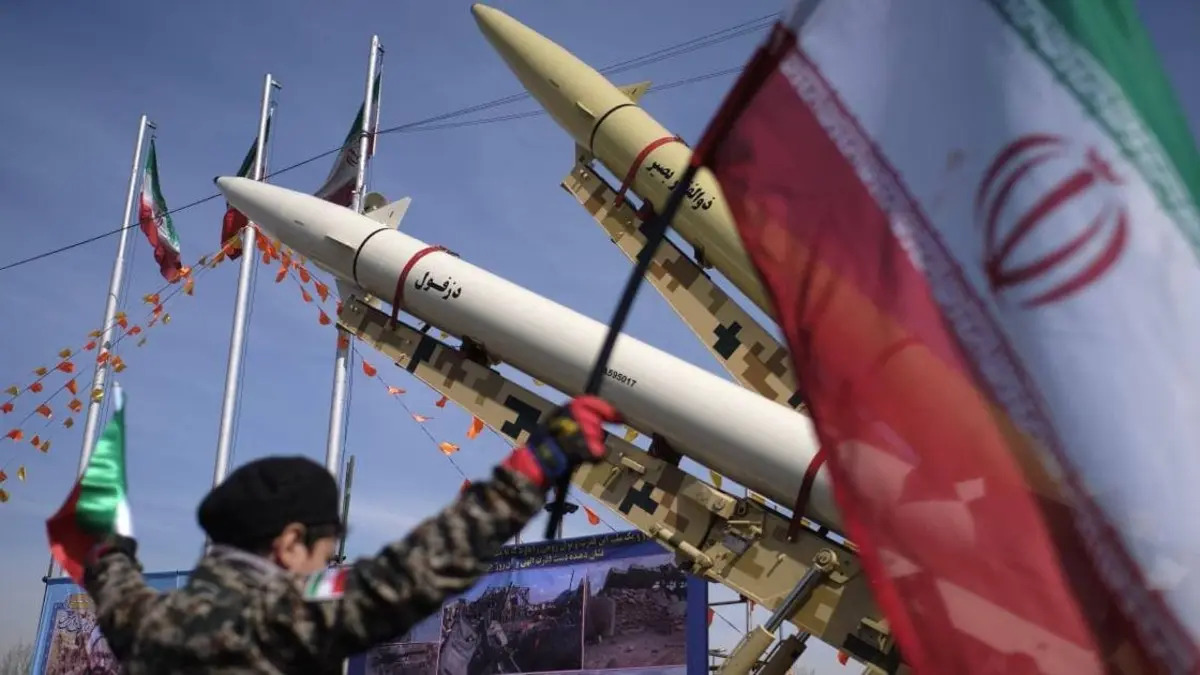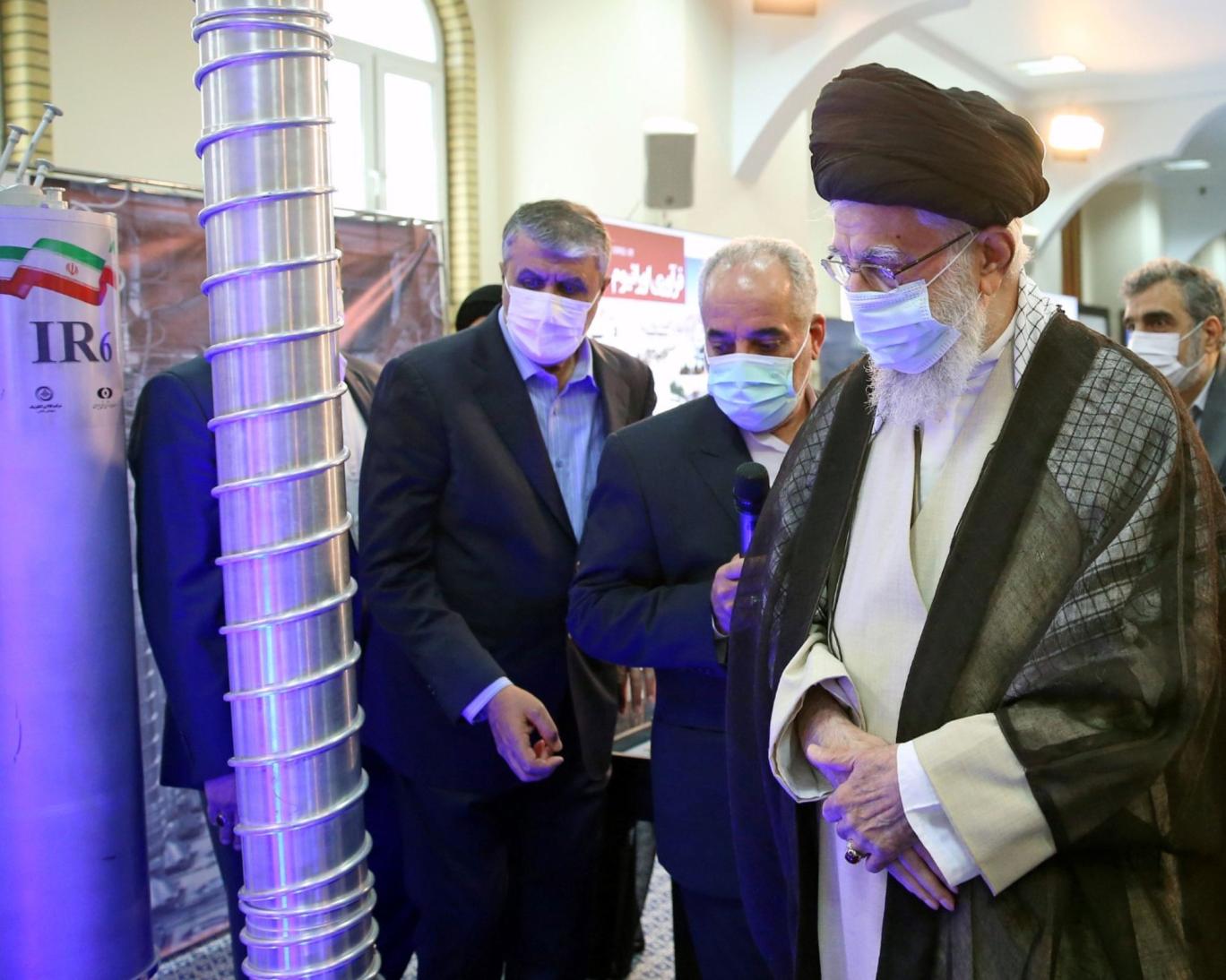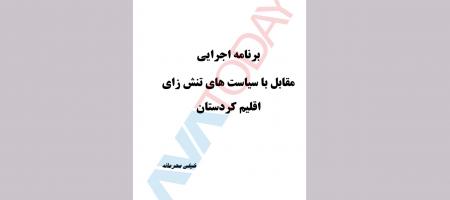
On Tuesday, May 14, the Australian government announced the latest round of sanctions against Iran. This is while Tehran continues its terrorist and subversive activities in the Middle East and beyond, even while suffering under hundreds of already-existing sanctions.
Lack of a serious approach by the world community to Tehran’s warmongering has increased the regime’s arrogance to such a degree that it is now openly calling for a novel “nuclear doctrine” to build nuclear arms.
After Tehran’s missile and drone attacks against Israel on April 13, Iranian officials have come to the conclusion that at an unspecified date in the future, Israel is going to strike a devastating blow to their military and nuclear infrastructure. They live in a state of perpetual fear and are constantly on the alert for the sound of explosion. That is why the senior officials of the Islamist regime keep talking about the possibility of making a nuclear bomb that gives them some sense of security.

In this regard, Kamal Kharazi, head of the Strategic Council of Foreign Relations and adviser to the Supreme Leader Ali Khamenei, recently announced in an interview with Al Jazeera: “In case of any attack by Israel on Iran, we will change our nuclear doctrine.”
Also, Javad Karimi Qudousi, a member of parliament, talked about “90% enrichment in just half a day and production of an atom bomb in a week,” emphasizing: “This threat is not aimed at the Zionist regime. The targets are the U.S. and European countries that support this rabid dog.”
To know more about the situation, I had an exclusive interview with Dr. Reza Parchizadeh, political theorist and security analyst. In this conversation, I asked Parchizadeh why the Iranian regime is talking about changing its nuclear doctrine and building an atomic bomb now. He replied: “The Islamic Republic is under a lot of internal and external pressure. People resist the regime and strike at it at every opportunity. Tehran’s ploy to push Reza Pahlavi to the limelight has also been exploited by Israel and turned against the regime. It looks like the U.S. has given up trying to revive the nuclear deal with Tehran and is instead trying to bring Saudi Arabia and Israel closer together, which can intensify regional pressure on Tehran. Therefore, the Islamic Republic, which finds itself trapped in a corner, is threatening to build an atomic bomb as a last resort to avoid a fall.”

I asked Parchizadeh if he thinks the Iranian regime’s updated nuclear doctrine can lead to an international alliance against the Islamic Republic or that the world will learn to live with it. He said: “Bringing up this issue by itself won’t provoke a serious response by the West, because the West is now engaged in several fronts around the world. It is in conflict with Russia in Ukraine and with China in the Far East. In Africa it is facing military coups that demand the expulsion of Western forces and their replacement by the Russians and the Chinese. In the Middle East, the West is struggling with the Israeli-Palestinian struggle. The Iranian regime counts on these conflicts and hopes that the West will eventually turn a blind eye to Iran’s going nuclear just like what happened in North Korea and Pakistan. Nevertheless, various factors, including the pressure of the regime’s opponents on the West, as well as the lobbying of Arabs and Israel as well as other opponents of the regime, can force the West’s hand to react against the Islamist regime.”
I also asked Parchizadeh why he thinks the West, especially the United States, almost always adopts an appeasing stance towards the Iranian regime even in the face of its increasing nuclear threat and ongoing terrorist activities. He replied: “The West’s appeasement of the Islamic Republic has many reasons. One is that part of the American political system is ideologically aligned with Islamists. Another reason is Washington’s miscalculation of the regime’s destructive potential, which is partly due to Tehran’s influence campaign in the West represented by characters like Hossein Mousavian and lobby groups like the NIAC. But the main reason seems to be the absence of a reasonable alternative to the Islamic Republic, which has forced Washington to put up with the current regime. Tehran is also aware of this fact and systematically promotes ‘extremist alternatives’ so that the West will not be tempted to push for a regime change. ‘Pahlavism’ must be seen in this context.”
Finally, I asked Dr. Parchizadeh what the West must do about the Iranian regime’s nuclear program and terrorist activities that it hasn’t done so far. He said: “Since the regime’s Islamist ideology is an inherently oppressive, interventionist and imperialist worldview, as long as this regime exists, it will continue to conduct state terrorism and produce weapons of mass destruction, including atomic bombs and ballistic missiles, as well as continuing its expansionism in the Middle East. The Islamic Republic is not a regime that can be normalized to fit in the civilized world. The only way to stop it is to remove the regime and establish a democracy in Iran. The West has not yet decided to do so, and therefore the regime can manipulate the situation to its advantage by stage-managing the opposition. But when the West seriously decides to remove the regime, Iranian democracy activists will have a better chance of success.”
Report and interview: Dalanpar










